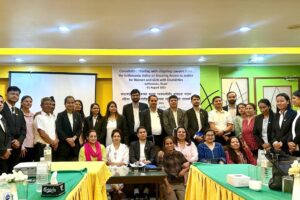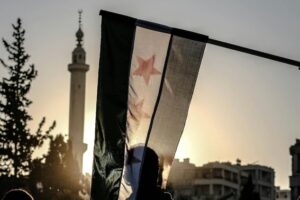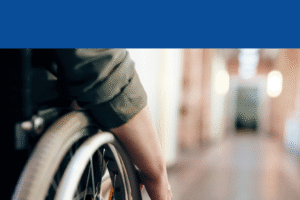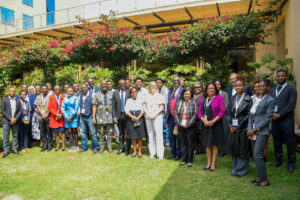
Aug 21, 2019
On the occasion of the second United Nations’ International Day of Remembrance of and Tribute to Victims of Terrorism, the ICJ has today published a compilation of international sources on human rights of victims of terrorism.
The compilation features a preface by the UN Special Rapporteur on the promotion and protection of human rights and fundamental freedoms while countering terrorism, Ms Fionnuala Ni Aolain.
It collects relevant UN General Assembly, Human Rights Council, and Security Council resolutions; findings and recommendations of the Special Rapporteur; and other UN and regional sources.
Human rights of victims of terrorism are set to receive new attention and focus at the global level.
Among important current developments are the following:
- The Human Rights Council’s most recent renewal, in March, of the mandate of the UN Special Rapporteur, highlighted and endorsed the ongoing efforts of current Special Rapporteur Fionnuala Ni Aolain to mainstream and highlight the human rights of victims of terrorism in relation to country visits and thematic work carried out by the mandate.
- In June in New York, a group of States led by Afghanistan and Spain launched a “Group of Friends of Victims of Terrorism” with the aim of bringing additional focus and activity at the United Nations to this topic.
- In July the General Assembly adopted for the first time a resolution on “Enhancement of international cooperation to assist victims of terrorism”.
- The UN Office of Counter-Terrorism is preparing to convene a global Congress of Victims of Terrorism in June 2020.
Many governments have long invoked the suffering of victims of terrorism in seeking to justify counter-terrorism measures that do not comply with human rights law, or indeed the rule of law more generally, while failing in practice to adopt and implement concrete measures at the national or global level to respect, protect and fulfil the actual human rights of victims of terrorism.
The ICJ accordingly welcomes the renewed focus and cooperation within the United Nations on concrete measures to ensure that the human rights of victims of terrorism are fully respected, protected and fulfilled.
Civil society, including groups that specifically represent victims as well as other organizations with a range of relevant experience and expertise, has an important role to play, not only in implementing but also in helping to shape those efforts.
The ICJ hopes the present publication will be found useful by all engaged in these processes, and looks forward to further engagement and progress towards the better realization of human rights of victims of terrorism in the years to come.
For more information, contact un(a)icj.org
Download
Universal-Compil Victims of Terrorism USLet-Publications-reports-thematic reports (full compilation in PDF)
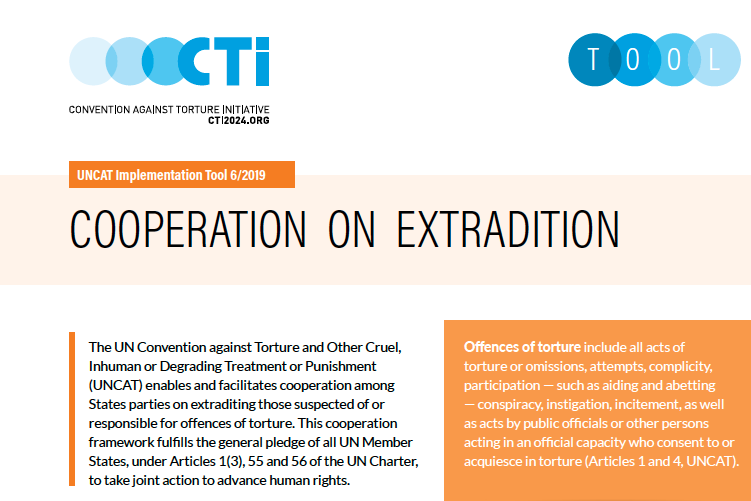
Jul 19, 2019
On 17 July 2019, the Convention Against Torture Initiative (CTI) released the 6th tool in their series of UNCAT implementation tools on “Cooperation on Extradition”. The ICJ developed the tool for the CTI.
This latest tool focuses on the extradition framework established in the UN Convention against Torture and Other Cruel, Inhuman or Degrading Treatment or Punishment (UNCAT), which enables and facilitates cooperation among States parties on extraditing those suspected of or responsible for offences of torture.
The tool sets out in an understandable format the basic elements of UNCAT’s extradition framework, explaining how it operates in practice, with the aim of bringing those suspected or convicted of torture to justice, thus ending impunity for torture and other ill-treatment. It provides 32 international, regional and national examples of how the framework can operate in practice.
You can read the tool here: Universal-CTI-Cooperation-Advocacy-ENG
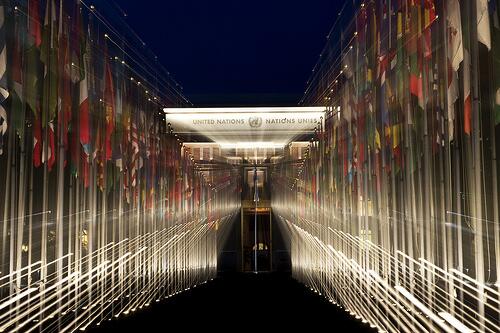
Jul 8, 2019
1316 NGOs working on diverse human rights issues from 174 States and territories around the world are calling the #HRC41 for the renewal of the mandate of the Independent Expert on violence and discrimination on the basis of sexual orientation and gender identity.
Universal-HRC41general-debateAdvocacy-open letters-2019 ENG (full statement, in PDF)
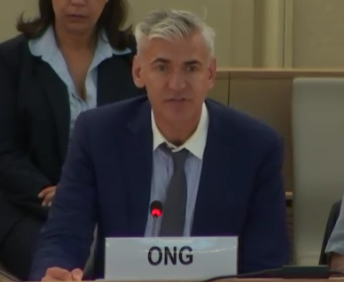
Jul 1, 2019 | Advocacy, Non-legal submissions
The ICJ today highlighted the negative impacts of criminalisation of HIV non-disclosure, exposure and transmission, on human rights, as well as an ongoing initiative to develop a set of relevant principles, at the UN Human Rights Council.
The oral statement, delivered during the General Debate under Agenda Item 3, was titled “Developing principles to address the detrimental impact on health, equality and human rights of criminalization with a focus on select conduct in the areas of sexuality, reproduction, drug use and HIV” and read as follows:
“The ICJ welcomes the High Commissioner’s report (A/HRC/41/27) on human rights in the response to HIV.
Unjust criminalization of HIV non-disclosure, exposure and transmission is a barrier to the realization of human rights – fostering stigma, discrimination, violence and abuse.
Last year, the ICJ – supported by UNAIDS, OHCHR and UNDP – convened a meeting of jurists to address the harmful effects of misuse of criminal law in relation to HIV and other issues.
The meeting endorsed civil society’s call for jurists to elaborate a set of principles to assist legislatures, the courts, administrative and prosecutorial authorities, and advocates address the deleterious impact on health, equality, and human rights of criminalization in a range of areas. In addition to HIV, jurists concluded the principles should address criminalization of sexual and reproductive healthcare services, including abortion; criminalization of consensual sexual conduct, including sex work, sex outside marriage, same-sex relations, and adolescent sexual activity; and criminalization of drug use and of possession of drugs for personal use.
To ensure the jurists’ principles are effective and protect the most at-risk individuals, the process for developing them is as important as the content of the principles themselves. Thus, broad consultation with a wide range of stakeholders, including national and international civil society organizations, UN human rights mandate holders and UN agencies, is ongoing.”
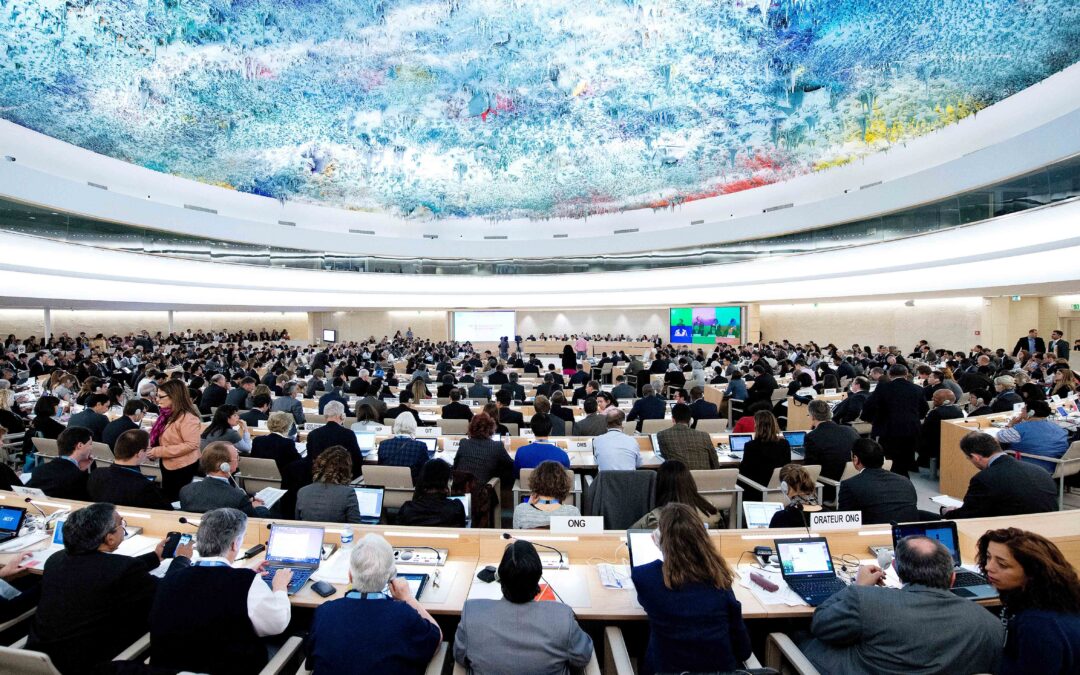
Jul 1, 2019 | Advocacy, Non-legal submissions
The ICJ today joined other NGOs in calling on States to do more to save lives and uphold human rights of migrants, including by recognising the role of civil society and creating an environment for its work.
The statement to the UN Human Rights Council, delivered on behalf of the group of NGOs by the International Catholic Migration Commission, read as follows:
“We are deeply concerned by widespread and growing violations of the human rights of migrants and an environment where those who seek to protect them are increasingly criminalized.
The Global Compact for Migration provides technical guidance and a cooperative framework for the implementation of existing legal commitments. It is mobilizing resources to support States in this.
We are asking you to do more and to do better to save lives and uphold human rights. The Compact can help you do this.
Civil Society is already using the Compact at regional and national level, often in partnership with States, for example:
- Civil society in Central America are developing a pilot programme to identify missing migrants to support States’ implementation of Objectives 8 and 9.
- Migrant Forum in Asia has led consultations with governments and other stakeholders throughout Asia.
- Cross-Regional Center for Refugees and Migrants has developed a baseline assessment on the GCM for the MENA region.
- The International Detention Coalition is working with States to develop a cross regional platform on alternatives to child immigration detention in line with Objective 13(h)
We believe these activities can inspire similar measures, but we need all States to create an environment that enables us to do so and we need all States to take leadership on implementation.
The human rights of migrants deserve the acknowledgement, respect, and urgent action of all of us.”
Delivered by the International Catholic Migration Commission, the statement was co-sponsored by the following ECOSOC accredited NGOs:
- ACT Alliance
- Alianza Americas
- Asylum Access
- Caritas Internationalis
- Congregation of Our Lady of Charity of the Good Shepherd
- Congregations of St. Joseph
- Defence for Children International
- International Catholic Migration Commission
- International Commission of Jurists
- International Council of Voluntary Associations (ICVA)
- International Detention Coalition
- International Movement Against All Forms of Discrimination and Racism (IMADR)
- Migrant Forum in Asia
- Save the Children
- Terre des Hommes International Federation
- Translators without Borders
- Vivat International
- World Organization for Early Childhood Education (OMEP)
The statement was also supported by the following NGOs and networks who do not have ECOSOC accreditation:
- Action Secours Ambulance (ASA)
- Asia Pacific Refugee Rights Network (APRRN)
- Asociación Rumiñahui
- Bloque latinamericano y el Caribe sobre Migración
- Casa Monarca ayuda humanitaria al migrante
- Center for Migrant Advocacy, Philippines (CMA-Phils)
- Centro de Atención y Desarrollo Integral Migrante (CADIM Oxnard)
- Centro de Recursos Centroamericanos Del Norte California (CARECEN)
- Centro de Atención a la Familia Migrante e Indígena (CAFAMI)
- Civil Society Action Committee
- Comision de Accion Social Menonita (CASM)
- Destination Unknown Network
- Estancia del Migrante González y Martínez
- FM4 – Paso Libre
- Fundación para la Justicia y el Estado Democrático de Derecho
- Global Coalition on Migration
- Institution para las Mujeres en la Migración (IMUMI)
- Instituto de Estudios y Divulgación sobre Migración (INEDIM)
- International Presentation Association
- NGO Coalition on Migration
- Organismo Cristiano de Desarrollo Intergral de Honduras (OCDIH)
- Pacific Islands Association of Non-Government Organisation (PIANGO)
- Plateforme des Organisations Nationales et Territoriales (Pont-Sch)
- Red de Mujeres del Bajío
- Red Internacional de Migración y Desarrollo
- Red Jesuita con Migrantes de América Latina y Caribe (RJM-LAC)
- Religious of the Sacred Heart of Mary
- Solidarity Centre
- The Mixed Migration Centre
- Women in Migration Network






